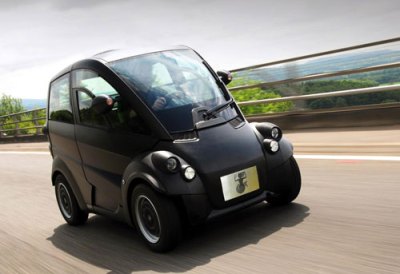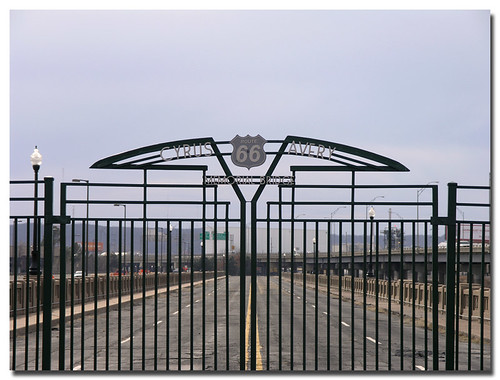Bug Out; the new BOV?
 Gordon Murray the renowned designer of Formula One race cars and the McLaren F1 road car has just made public his latest design known as the T25 Mini Car. The diminutive 3 cylinder 3 seater is compact, light weight and fuel efficient little pod. A new class of vehicle aimed to solve problems such as congestion among other things. You can read and see all the details at this link.
Gordon Murray the renowned designer of Formula One race cars and the McLaren F1 road car has just made public his latest design known as the T25 Mini Car. The diminutive 3 cylinder 3 seater is compact, light weight and fuel efficient little pod. A new class of vehicle aimed to solve problems such as congestion among other things. You can read and see all the details at this link.
Is this the ultimate BOV, “bug out vehicle” Small, fuel efficient and let’s face it, really fun to look at. There’s also a truck, a van and an electric power train versions in the works.
Definitely a vehicle to keep your eye on.
Fling Shooee!
 The philosophy of less is not new and is spread across many disciplines, cultures and beliefs. Regardless of your approach there is good reason to do get rid of “stuff”. Stuff takes time, energy, space and money for the privilege of having it. There are many approaches to having less stuff, some practical some philosophical and even spiritual. Part of what makes us keep things is the idea that we will need this or that thing, down the road. The solution to keeping things for the “rainy day” is to assess what the real needs are and then get rid of the rest.
The philosophy of less is not new and is spread across many disciplines, cultures and beliefs. Regardless of your approach there is good reason to do get rid of “stuff”. Stuff takes time, energy, space and money for the privilege of having it. There are many approaches to having less stuff, some practical some philosophical and even spiritual. Part of what makes us keep things is the idea that we will need this or that thing, down the road. The solution to keeping things for the “rainy day” is to assess what the real needs are and then get rid of the rest.
The second component of “less” is a more subjective thing which involves style and the absence of visual clutter. When things are out of site, they are indeed out of mind. We succeed when we are able to focus on what really matters. It’s the leftover and things undone that tend to haunt us later on and like gum on your shoe, hard to remove as time goes on.
When the lights go out
 After thirty years of designing homes and other structures I’ve learned what things are truly important. It’s not the style, type of materials or the color of the carpet. The most important part of any structure that we humans’ use, are the systems that make up that structure. Briefly they are, the ability to stand up [engineering], power to run the systems in the structure and plumbing; because humans must drink water and eliminate.
After thirty years of designing homes and other structures I’ve learned what things are truly important. It’s not the style, type of materials or the color of the carpet. The most important part of any structure that we humans’ use, are the systems that make up that structure. Briefly they are, the ability to stand up [engineering], power to run the systems in the structure and plumbing; because humans must drink water and eliminate.
It only takes one power outage to understand how important electricity is. We take it for granted every day. When the electricity goes down this is what stops. The lights, all appliances, TV, Internet and all electric gadgets will quit working. If the electricity stays off, it won’t be long before everything in your refrigerator will turn into a science project. Also, you lose all public lighting and traffic signals and you can’t pump gasoline. Stores with electronic cash registers will close (at least until they can find people who can make change the old fashioned way). We are very dependent on this “system” among others. The problem with this dependence is that it makes us vulnerable if any of these systems fail or we are not able to obtain them.
Even Congress is worried about it; Power Grid
The Solution
Due to the increased frequency of disasters of all kinds it is prudent to take measures that will enable us to survive if any of these systems is interrupted. Here’s a partial list: Portable generators (still require fuel), Solar Collectors (small ones can charge batteries such as AA) wind power. Another thing to do is to reduce dependence on items that require lots of electricity.
Improvise, adapt and overcome.
The Problem With Survival
 The economic collapse scenario
The economic collapse scenario
The problem with survival [in the wild] is that many people won’t. I hate to say that but many people are not prepared mentally to survive. Another reason survival is unlikely for some is that there is no experience for them to draw on. Given that most people are used to living out of their refrigerators and fast food restaurants, if they had to forage and or kill game to live on, few of us modern folk know how to kill, butcher and prepare wild game. There are lots of other problems but think about this; if there are lots of people wandering around in the wilds it won’t be long before issues arise. . I can think of nothing more dangerous than a suburbanite trudging through the woods in tennis shorts and flip flops, dragging a bunch of rarely used camping gear as if going for a weekend at the lake. Unless you have a really remote retreat to reside in while things get sorted out you will have to deal with other people and all of the societal issues that go along with it. Who owns what, where and for how much? You can imagine.
A more plausible scenario is this. Outages and scarcity will be spotty and regional. Cities will be hardest hit because people will panic and out of desperation will do “bad things”. As long as there is government at any level they will continue to function as best they can. The problem with this is that the “preparedness plan” that has been safely in the notebook will now be tested in ways unimaginable by those who wrote it. The “officials” will be on edge, undermanned and overworked. The unscrupulous of society will exploit the situation to the maximum extent.
While it is possible to obtain enough food and water to survive, the picture becomes a little more complex when you consider things like fuel, medical and other services become necessary. We have become a very dependent society and just because we are without electricity doesn’t mean we will be content to stay that way.
It is easy to imagine small “communities” cropping up to aid in their mutual support. Friends and family will still be a part of our network and as such will take on new meaning as we mutually try to support our families and ourselves.
Often preparedness or survival is spoken of in a solitary way with the only contact being with some adversary. While situations may arise where you are on your own it is more likely that you will be involved with other people in one way or the other unless you’ve been dropped off in a foreign country and in a hostile environment.
Just an opinion or experienced speculation, which is all we have to go on at this point. Some “Preppers” as they are called seem to relish the opportunity to dive into all of the political rhetoric and I suppose that does figure into the whys of society going down hill but the tangible needs are those things that we can personally do something about.
Bed Table Chair • Survive or Thrive
 We’ve turned a corner. The problems we face never really change much but the context makes a difference as to how we solve those problems. The economic, sociopolitical order is undergoing a shift and as such we must adapt because specialization is for insects.
We’ve turned a corner. The problems we face never really change much but the context makes a difference as to how we solve those problems. The economic, sociopolitical order is undergoing a shift and as such we must adapt because specialization is for insects.
There is currently a move towards being more prepared for the unforeseen eventualities that might come our way due to some sort of disaster either natural or manmade. These moves towards preparedness have been given various labels but they only obscure the real issue which is how will one survive if all the resources that we currently depend on, somehow fail.
Acknowledging that I haven’t read everything there is on the subject I would offer the following observation. Much of the discussion of surviving or preparedness, is lacking one important ingredient; some sort of context.
What exactly is it you are you surviving? There are three categories of survival, 1) Lost or stranded, 2) Natural Disasters, and 3) Societal Breakdown [ which includes wars, terrorist attacks and economic collapse ] Each type of preparation requires a different response. If you are surveying the internet looking for ideas on how to be prepared for some calamity it would be good to first determine which kind of survival the writer is trying to help you with. There is some overlap to be sure but it would be a good first step to categorize the books, websites etc into the three basic types of survival.
Once you’ve become overwhelmed [ trust me, you will be ] you need to come up with your own plan that fits your situation, area and ability.
Although books could be written on the possible scenarios it is wise to note that whatever happens it will probably be different than what you imagined. In the first two types of survival the time frame is likely to be fairly short in which you must survive until rescued or the danger is past. In the case of the third type of survival it could go on for weeks, months or years. To thrive over longer periods of time there needs to be a different mindset and criteria to determine what to do. This is the most difficult thing to prepare for because it will have consequences that are difficult if not impossible to predict.
If this seems a bit overwhelming, just remember the courage of those who have gone before us. They endured and conquered the challenges they faced and if you are willing, you can do it too. Time to brush up on the history of those who were equal to the task. What and who did they rely upon?
Three Important Considerations – Before you Build Buy or Rent

Before you Build, Buy or Rent —the most important issues governing your residence are Water, energy and communications along with location [ more specifically where the building touches the earth and it’s orientation to the sun ]. These are things we all take for granted but if you carefully think about each one they have profound implications. Take away any one of these and you can imagine the impact. The other component for sustaining life is food. While this may seem overly simplistic the strain placed on our natural resources causes us to take a closer look at those things necessary for life. Consider the quality of each item and where it comes from.
What is design?
Design is not chopped liver.
Design is a process that leads to a conclusion. It has a beginning a middle and an end. Chopped liver is always served as a side dish. Design cannot be a side dish. Design is not decoration; it may be decorative or plain but that is not the purpose of design. Design is the development of an idea to some purposeful conclusion.
Using Your Design Senses
There are two components to design or we should say creativity. The first component is to actually create something; draw, paint, dance, sing and so on and the other component is to evaluate the thing created to determine if it passes for something we wish to display to others. Both things require skill and both are subjective. Here’s what I have observed about both laymen and designers; they have trouble being really honest about their work. In terms of graphic arts some will opt for “good enough” rather than measure up to the level of professionalism exhibited in many publications and on consumer goods we purchase.
A singer must realize whether they can actually sing a listenable version of a song as opposed to just liking to sing. I like to put it this way: “appreciating talent in someone else is not the same as having it yourself.”
The key to doing great work is to be brutally honest about what you did and with courage doing whatever is necessary to fix it. Even if that means you have to leave it to more skillful hands.
Bed table chair, what does it mean to me?
How do three pieces of furniture symbolize this blog and more importantly why is it important to me? Bed Table Chair is simply a philosophy or approach to living. In this era where everything is defined by a niche it would seem that something so broad as “an approach to living”, would be out of step. Let me explain; I have for over thirty years designed places where people live and work. Those designs involved countless ways in which we interact with the material world and from that process has come a way of paring down to what is essential versus what might be interesting for the moment. In other words it’s about editing your life and discovering those things that are important.
There are plenty of sites that can teach you how to unclutter or save money and they do an excellent job of covering those topics. I suppose there will be some overlap here but what I hope to offer is some underlying strategy to living in what I call, “the tension between heaven and earth”.
Please sign up for the rss feed and feel free to chime in with your thoughts and questions.
Joe McNally The Moment It Clicks
A book that I haven’t even read but will recommend. World renowned Photographer Joe McNally gives you a video preview at this link.



